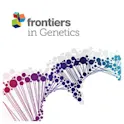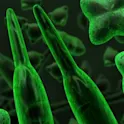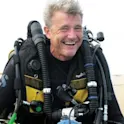Frontiers Communications
Editor
Editor

Frontiers news
01 Jul 2015
Catch up with the most viewed articles from Frontiers in Genetics this June. All are Open Access – enjoy!

Humanities
30 Jun 2015
The Annual Conference of the Alliance of Digital Humanities Organizations (#DH2015) – is currently taking place in Sydney, Australia from June 29 to July 3. Though Frontiers is not attending, we recently met with Yannick Rochat, postgraduate researcher of the EPFL Digital Humanities Lab who will be presenting on ‘Character Network Analysis of Émile Zola’s Les Rougon-Macquart’ on July 1, to discuss the current state of the field. His comments deliver an insightful look at what it means to study Digital Humanities today. Digital Humanities are here to stay. The field has, for a good half-century, been coming into its own, echoing a global need for new connections, new dialogues, and a new way of approaching the old. The old reshuffled. Refurbished. Reinstated. Interdisciplinarity is central to Digital Humanities. The field exhibits an interest in bridging traditionally holistic and hermetic disciplines. Openness and dialogue are key. Indeed, it would be impossible for one aspect of its bipartite structure to subsume the other (that the “digital” would consume and undo humanities, or the obverse: that humanities could “triumph” over the digital fad). The foundation of Digital Humanities is the necessity for dialogue. As the interview below shows, the field may be seen […]

Frontiers news
29 Jun 2015
According to social media experts, scientists can greatly benefit from social networking technologies. General networks offer large audiences for public outreach while specialist and professional platforms help researchers connect with peers.

Robotics and AI
29 Jun 2015
The market, direct applications, the will for seeking knowledge, understanding risks through research, involving the public, and opening up the field are the main elements that influence robotics research in 2015.

Featured news
23 Jun 2015
With the latest release of the 2016 Journal Citation Reports (JCR) by Clarivate Analytics (f.k.a. Thomson Reuters), 24 Frontiers journals now have Impact Factors, up from 19 last year.

Frontiers news
23 Jun 2015
Frontiers in Plant Science is pleased to announce a new Research Topic entitled “Advances in microalgae biology and sustainable applications”.

Frontiers news
21 Jun 2015
Dr Martin Paul Eve’s book Open Access in the Humanities is an incredibly detailed, extensive and comprehensive exploration of, well, Open Access in the Humanities. He gauges the Humanities publication field, siding for Open Access yet galantly acknowledging the multiplicity of perspectives which enter into the debate.

Open science and peer review
19 Jun 2015
Selected news, views and information on Open Science and scholarly publishing from the past week

Life sciences
16 Jun 2015
Heavy Metal and related genres, such as Death-, Black-, Folk-Metal, or Metalcore, are often associated with aggression and even criminal offence.

Frontiers news
15 Jun 2015
Frontiers attended the seminar “Selling science? News, public relations and communicating scientific research” organized by Phg Foundation in Cambridge. It was there that we had the pleasure to meet Dr. Andy Williams.

Open science and peer review
12 Jun 2015
Selected news, views and information on Open Science and scholarly publishing from the past week

Robotics and AI
11 Jun 2015
There is some debate about Robotics and Artificial Intelligence (AI) between those who believe that it would enable our digital technology to address concrete societal problems, and those who want to limit it based on ignorance and fear.

Life sciences
11 Jun 2015
The study used data from 4,450 US adolescents to probe why some students shun math-intensive fields. Believing that solving tough math problems requires innate abilities might discourage students, the researchers reasoned.

Life sciences
09 Jun 2015
By Nina Rothe Former Vice President of the Royal Geographical Society and Chair of the Expeditions and Fieldwork Division, polar expert Paul Rose is currently Expedition Leader for the National Geographic Pristine Seas Expeditions. He was the Base Commander of Rothera Research Station , Antarctica, for the British Antarctic Survey for 10 years and was awarded HM The Queen’s Polar Medal. For his work with NASA and the Mars Lander project on Mt Erebus, Antarctica, (which he climbed, of course!) he received the US Polar Medal. And he has a mountain named after himself in Antarctica. Happy World Oceans Day, Paul! When you think about the sea, what’s the first image, smell and sound that comes to your mind? Freedom, simplicity, adventure, promise! What has been the most important achievement in terms of ocean conservation in the past year and what do you consider the 3 most pressing problem(s) facing the world’s oceans right now? Raising the level of awareness to the extent that this is now a genuine sweet-spot for ocean conservation is a real success. For the first time in history, people understand that human activities directly affect the ocean’s health. The there most rousing problems are: overfishing, […]

Open science and peer review
08 Jun 2015
This is a short point-by-point discussion of the major issues and discussion points which arose at spring conferences and which would seem to represent key concerns regarding open-access publishing.
Get the latest research updates, subscribe to our newsletter